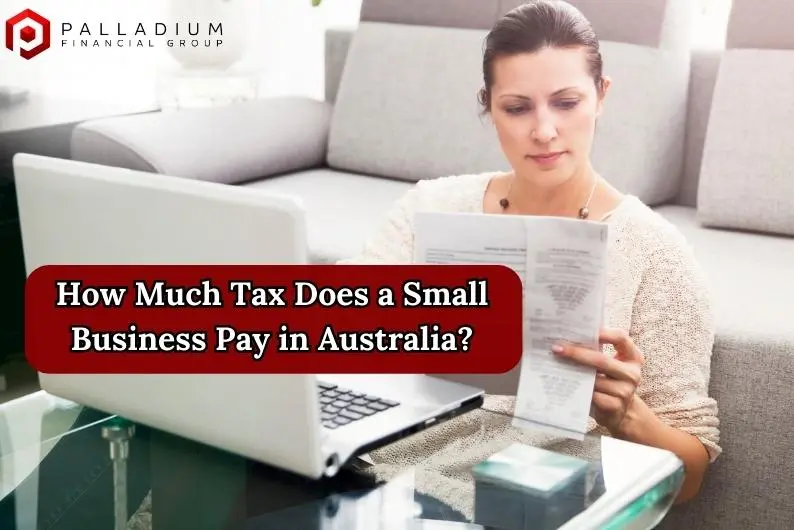Every business has to pay tax on its income or its net profit. The idea of income taxes makes many small business owners want to yank their hair out!
Taxes are burdensome if you are not a tax accountant for small businesses in the industry, but if they are done correctly, they will make your nights less stressful. However, it can also be relaxing if you have experienced bookkeepers for small businesses.
Your taxable income determines how much income tax your company must pay. Your assessable income subtracted by any deductions will be your net income and compute your tax liability.
Assessable income:
Generally speaking, assessable income is money that your company makes. It comprises all gross income (before taxes) from your regular business operations (sales, for example) and any other income not related to those operations, including capital gains. It does not include GST credits or GST owed on purchases you make. A GST specialist can assist you in filing a GST return.
Deductions:
Deductions are sums you can claim for costs associated with operating your business.
Making use of a small business tax accountant in Perth is strongly advised. A specialist is familiar with tax regulations and can assist you in getting the best returns and deductions while guaranteeing compliance.
There are certain advantages to having someone else handle your money, even if hiring bookkeeping services for small businesses or a tax agent will cost more than handling your taxes on your own.
In addition to managing any deductions and offsets that may apply to your company, they can better understand how the tax system works. They can uncover deductions or other offsets that you might have missed occasionally.
Tax preparation requires a great deal of patience, time, and effort. It could be difficult for your company to handle all tax requirements during the busy season.
The least fascinating aspect of running a small business is calculating taxes. However, a professional bookkeeping service can help you to overcome this problem.
It is necessary to keep your company in compliance with federal rules. Additionally, knowing the fundamentals of tax calculations will help you identify opportunities for possible tax savings. It increases the likelihood that your firm will succeed.
A vital duty for solitary traders is handling their lone trader tax obligations to the Australian Tax Office (ATO), as tax is no longer automatically deducted from their revenue.
Let’s look at single trader tax rates, tax calculation methods, the due dates for filing sole trader tax returns, and the impact that consultants can have on your business to ensure that you stay.
For the tax year 2022–2023, Australia’s business tax rates are 25% and 30%, respectively. Contrarily, the 10% flat rate of the goods and services tax (GST) is incorporated into the initial price of your goods or services.
On the other hand, your location and the total amount of your monthly wages decide the payroll tax rate. If the total of your wages is below a set threshold, you are free from paying payroll tax.
Whether or not a business is a corporation or a pass-through entity depends on how much money it makes. While pass-through firms pay taxes at the owner’s income-based marginal tax rate, which ranges from 10% to 37%, corporations pay a flat tax of 21% on business profits.
The form you’ll use to file your federal income tax return and the amount of tax you owe the IRS depending on your company entity. The tax rates for small enterprises for the two main categories—corporations and tax returns for sole traders—are broken down below:
Companies must pay corporation tax, whether they are Australian-based or foreign businesses with income in Australia. The whole company tax rate is 30%, albeit it varies based on the type of firm and annual revenue.
Since this rate can vary from financial year to financial year, it is advised to visit the Australian Tax Office (ATO) for the most up-to-date information. A lower tax rate may apply to your company depending on its revenue, which can change between fiscal years.
The majority of goods and services sold in Australia are subject to a tax known as GST. Businesses are responsible for obtaining GST, a flat-rate tax of 10%, from their customers. You can then transfer the GST to the ATO upon submission of business activity statements.
You must register for GST if your firm has a turnover of $75,000 or more or if you want to collect GST credits. A GST expert will help you calculate tax amounts accurately.
Payroll tax is a type of self-assessed tax that is determined by the total amount of wages that a company pays each month. Generally, It also includes any employee fringe perks and superannuation payments with regular salaries.
The thresholds and rates of payroll tax vary from state to state, unlike other tax forms in Australia, and you can pay it monthly, quarterly, or annually. This tax will be gathered by the State or Territory where your employees reside. By taking Bookkeeping Services Perth, you can calculate the payroll more accurately.
Even while this isn’t a tax on the company per se, it’s crucial to be aware of this requirement if you have employees. Pay As You Go (PAYG) withholding must be collected if your small business pays workers and independent contractors or is obliged to make payments to a company that does not provide an ABN.
You must send the money you collect to the ATO regularly to ensure that your employees and other payees can cover any applicable tax liabilities when it’s time for them to lodge their tax returns. Your firm must register if PAYG withholding is required from you.
The first $18,200 income you receive as a resident taxpayer in Australia is tax-free. The tax-free threshold is what it is termed. A small business accountant in Perth will explain these tax-free aspects.
You don’t have to pay taxes if your yearly income is less than $18,200. Usually, you must pay tax on any amount exceeding $18,200.
The equivalent of the $18,200 tax-free threshold is:
When beginning a new work, you must complete a Tax File Number Declaration form after contacting a small business tax advisor. By selecting “Yes” in response to the question, “Do you want to claim the tax-free threshold from this payer,” you inform your new employer that you wish to do so.
Also Read: How To Start A Small Business From Home In Australia – 2023
Any small business that has filed for incorporation must pay company tax with the help of a small business tax consultant to avoid delays and mistakes. There is no exception; you must pay taxes on every dollar your business makes.
Remember that other factors will affect the total amount of tax you must pay on your tax return 2023 in Australia, including the types of taxes your company is required to pay, your gross and passive income, any relevant concessions to your company, and maybe additional factors unique to your company or state.
You can contact a tax consultancy for tax return services in Perth. The best method to avoid tax scenarios without sacrificing the caliber of your service delivery is to outsource specific tax functions to qualified tax accountants.
Fortunately, a small business tax accountant in Perth provides scalable accounting and financial solutions that can be an extension of your company when you need it most.



Copyrights © Palladium Financial Group 2024